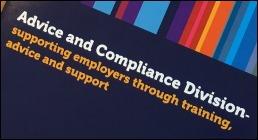
14/05/2020
Equality Commission advice note
The post-lockdown return to work and the impacts on employees with caring responsibilities
As the weeks of the Covid-19 pandemic pass and central and regional governments outline their initial plans to end the lockdown, employers may now be thinking about how to restart their business activities. This is likely to mean bringing employees back to work and out of the Government’s Coronavirus Job Retention Scheme (the employee furlough scheme). The end date for the scheme has been extended until 30 October 2020, although further details on that are still awaited.
The Commission has previously provided an advice note on equality issues which employers may encounter when furloughing staff and this advice has relevance when bringing employees back to work. Clearly, any plans that employers make will have to address how to continue to keep employees safe, especially those who are particularly vulnerable due to factors such as age, ill-health or pregnancy.
Returning to work – a carer’s dilemma
An issue that may also need to be addressed is the potential tension that might arise where an employer expects an employee to return to work, but where that employee finds it impossible or too difficult to do so because they need to stay at home to care for a family member or other person.
This may become a particular problem if workplaces re-open at a time when the schools and other childcare and social care facilities remain closed, wholly or partly.
Such tensions between employment and caring may be a source of concern for employees of both sexes, but traditionally they have affected more women than men, for various reasons. (See our Key Inequalities in Employment)
In terms of Northern Ireland’s equality laws, these concerns are often identified as a potential cause of indirect sex discrimination against women, especially where they result in a woman with caring responsibilities being unable to obtain or remain in work unless its terms are modified, e.g. through the provision of reduced hours or changes to start or end times or to shift patterns.
Many employees may already have flexible working arrangements that continue to satisfactorily meet their caring needs when they return to work. However, for other employees, there may now be a need for new or modified flexible working arrangements due to changes in their circumstances, as a result of the pandemic.
Good Practice Recommendations
When planning employees’ return to work, it would be good practice to invite them to submit requests for any changes to their working arrangements, temporary or permanent, that they might wish you to consider to enable them to continue with their caring responsibilities. Such requests might include various elements such as requests:
- to remain on furlough, providing the Government’s furlough scheme continues to operate and the employee is otherwise eligible to benefit from it,
- to change hours of work, start or end times, specific days off,
- to work from home, or
- to take paid holiday leave or unpaid leave.
It would certainly be better to do this in advance than to instruct an employee to return to work on their previous terms and then to try to deal with any work/life balance difficulties they may face by, for example, invoking disciplinary procedures against them.
When considering these issues, employers might also note that the terms of the current Coronavirus Job Retention Scheme state:
Employees who are unable to work because they have caring responsibilities resulting from coronavirus (COVID-19) can be furloughed. For example, employees that need to look after children can be furloughed.
Thus, for the time being at least, under the terms of the scheme, such employees may remain on paid furlough even where the employer has work that is available for other employees to do.
Dealing with requests for flexible working arrangements
These requests should be handled fairly and without discrimination between women and men and in accordance with a policy and procedure that is consistent with employers’ statutory duties. We recommend that you follow the guidance that we have published on this subject to assist you, which includes a model policy and procedure (pdf).
Flexibility: necessity is the mother of invention
One of the interesting consequences of the lockdown is that many employers have had to consider and find creative new ways of operating their businesses and of delivering their services to their customers.
This in turn might have consequences for employers when dealing with future requests for flexible working arrangements from their employees, particularly when giving reasons for refusing such requests, given the legal duty on employers to provide the rationale for such decisions. If potential solutions have proven to be effective at this time, it may be hard to say later that they are no longer effective unless there is good evidence to the contrary.
Webinar - Caring for careers returning to work
Paul Oakes, manager of the Equality Commission's Advisory Services Team, has some practical information and advice for employers keen to get back to business and who realise the value of helping staff with caring responsibilities make the transition back to work.
Further advice and information
Equality and discrimination law
For advice on employers’ obligations under equality and discrimination law, contact the Equality Commission’s helpline on 028 90 500 600 and ask for our Advisory Services Team. Alternatively, you can email enquiries@equalityni.org and we will answer as soon as possible.
Employment law
For advice on how comply with statutory employment law, contact the Labour Relations Agency.
Health and safety in the workplace
For advice on promoting health and safety in the workplace, and on how to carry-out health and safety risk assessments contact the Health and Safety Executive Northern Ireland.
The Coronavirus Job Retention Scheme
For further information on this scheme, including the eligibility criteria, contact HM Revenues and Customs.